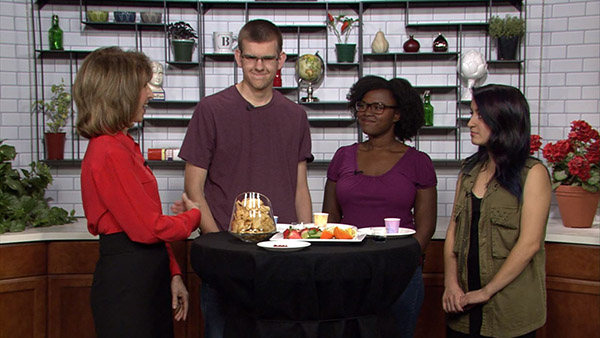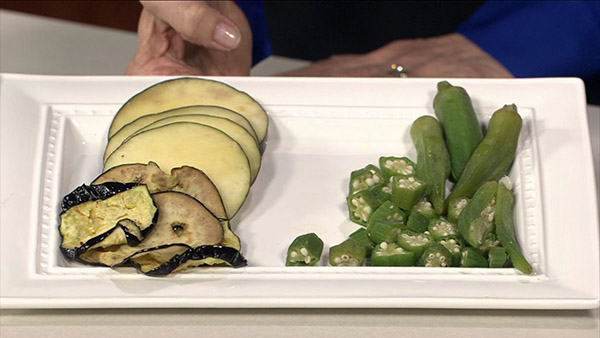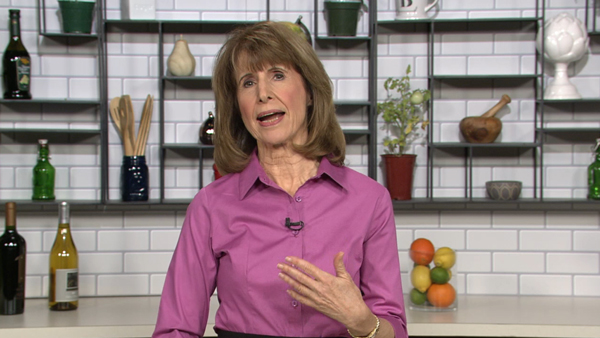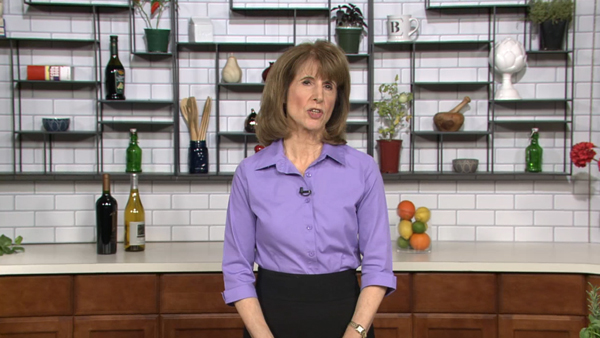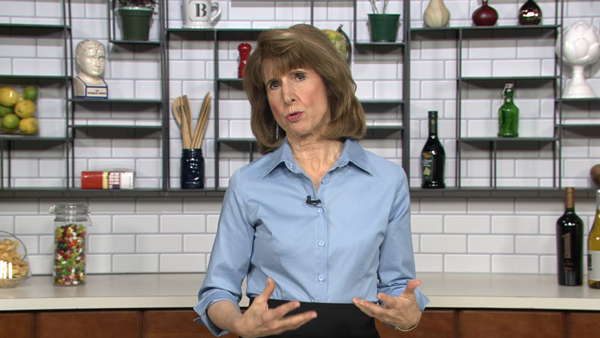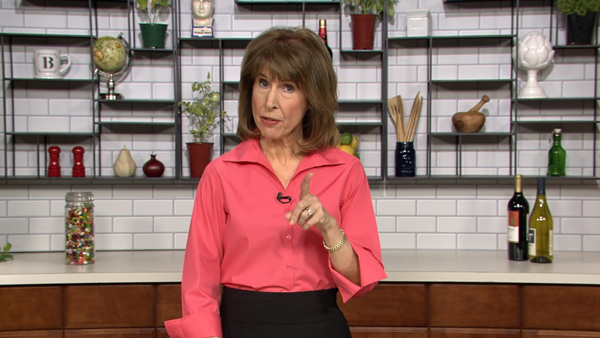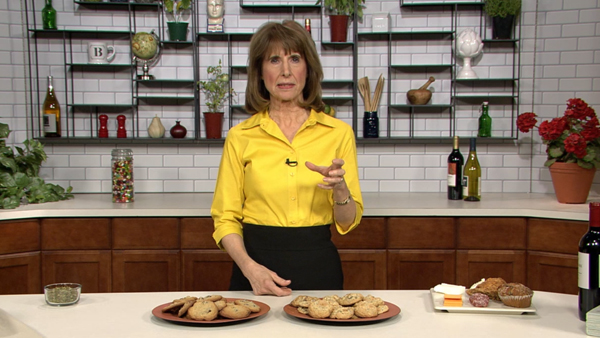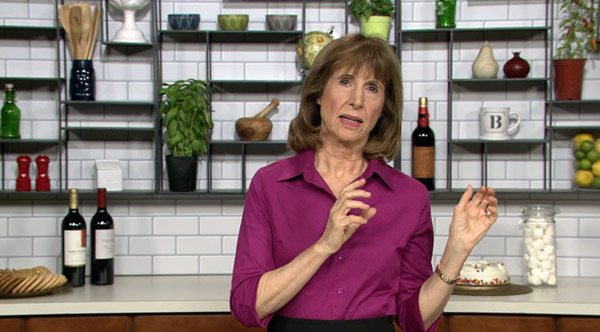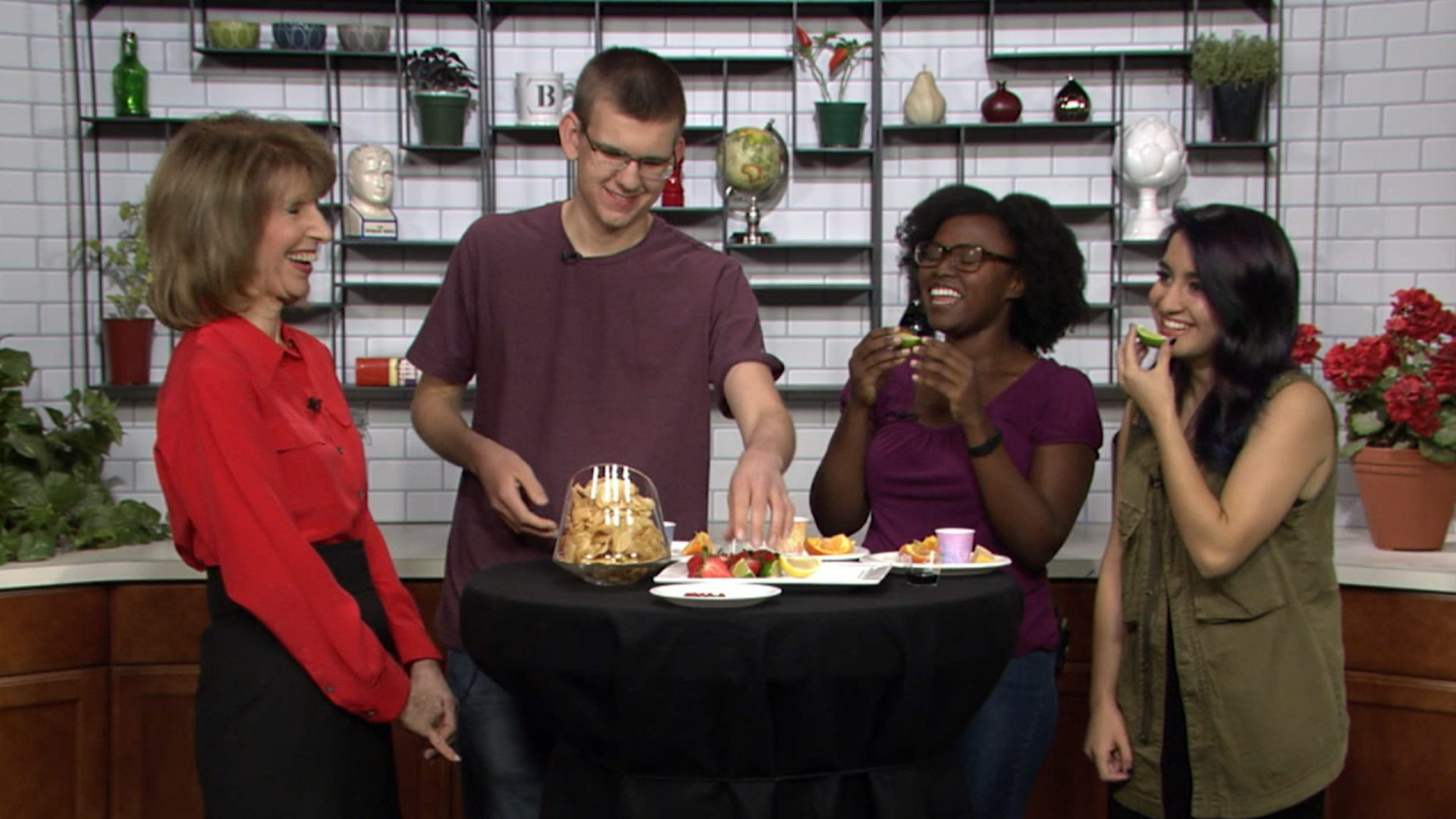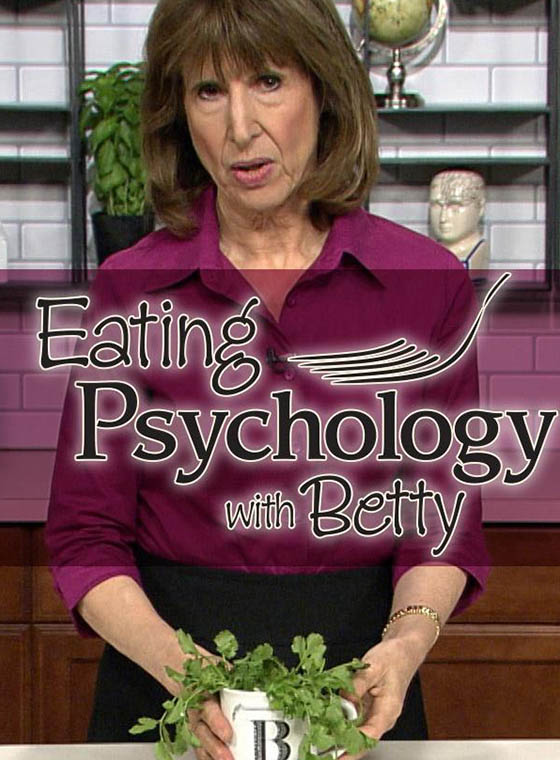
Eating Psychology with Betty
A research-based learning experience that you can immediately apply to your daily life and the eating habits of your family, the series explores the biology, genetics, social and learned behaviors of tasting and eating food.

LATEST Eating Psychology with Betty
Eating Psychology with Betty 113
Oct. 4, 2016
Diets do not generally work in the long run and can also be bad for your health. In this episode we discuss why this is the case and how focusing on your environment and your habits is more effective than focusing only on weight loss or gain.
Eating Psychology with Betty
Arizona PBS investigates the biology, genetics, social and learned behaviors behind why people experience foods and eating differently in the original series, “Eating Psychology with Betty,” produced in 2016.
The series delves into the reasons why eating is a special sensory experience for everyone. Scientific studies reflect that each person differs in what causes hunger, cravings for particular foods, the amount of food consumed in a single sitting, among a variety of other habits. “Eating Psychology with Betty” is a research-based learning experience that offers insight into the psychological factors behind dietary routines.
The program is hosted by Arizona State University professor of psychology and Provost Emerita Betty Capaldi Phillips, who is also the founder of Obesity Solutions initiative at ASU.
“We all eat, mostly every day, an activity that is a source of great pleasure,” said Phillips. “Yet, many of us also worry we eat too much or the wrong foods. Research in the psychology of eating shows that our food preferences and eating habits are produced by our experience, which means they can be changed. My aim in the show is to present this research in an understandable way so that people can use the information to achieve their eating goals.”
“I’ve learned so many fascinating facts about food from working on ‘Eating Psychology,’” said series producer Emily Bernard. “I think viewers will find it interesting to see how fundamental psychology concepts like classical conditioning and Pavlov’s dog relate to eating. What makes this program standout is that the concepts are relatable and all of the information presented is backed by research. Betty’s lessons made a huge impact on me.”
“Eating Psychology with Betty” addresses many common questions about why and how people consume food the way they do.
Highlights of the 13-episode season of “Eating Psychology with Betty” include:
Genetics
A common misconception is that people either like or dislike certain foods due to their genetic composition. In reality, very few food preferences are hard-wired. “Eating Psychology with Betty” explores the few known cases in which food preferences are genetically-based. Plus, discover why some people are supertasters, meaning they experience taste more intensely due to their genetic makeup. Betty explains how to determine if you are a supertaster and what difference it makes for your taste experience and eating habits.
Hunger
People often believe they are hungry when, in reality, it’s the sight and smell of food tricking the body into believing that it is. People also eat from force of habit, whether they are truly hungry or not. Analyzing the external cues that cause hunger can help you change your eating habits.
Role of Fat
People like fat because it makes food taste better: it makes sweet and salt more intense, enhances texture and its high caloric content makes us feel full. Fat gives cooked food crunch from browning, which also enhances the taste. Betty explains how you can change your fat eating habits.
Environmental Cues
People are said to live in an “obesogenic environment” – meaning a food environment that makes people fat. People eat when they see food or others eating, and people eat based on how much it appears they were served. Thus, the environment can make people eat more. Betty explains how you can control your eating environment, rather than having it control you.
Exposure, Culture & Neophobia
Learning to like familiar flavors begins prenatally, when the amniotic fluid is flavored by what your mother eats. This type of learning continues throughout life, but is particularly important before the age of two. Betty discusses neophobia, the fear of new, which is a characteristic of all young children and some adults in regard to new foods, and is part of the reason food flavorings and preparation are such an important part of culture.
Fantastic Foods
Fantastic foods are foods that change taste in unusual ways, or are special in how they produce strong liking or craving. Betty discusses miracle fruit, Szechuan buttons, chocolate, hot red pepper and other spices, as well as their fantastic effects.
Diets
Diets generally do not work in the long run and can be unhealthy. Betty discusses why this is the case and how focusing on your habits and environment is more effective than focusing only on weight loss or gain.
“Eating Psychology with Betty” is made possible by the Department of Psychology at Arizona State University.
Betty Capaldi Phillips
Betty Capaldi Phillips was a University Professor, Provost Emerita and Professor of Psychology at Arizona State University. She taught the Psychology of Eating course, and ran both human and animal research labs at ASU. She received her bachelor's degree from the University of Rochester and her Ph.D. degree in Experimental Psychology from the University of Texas at Austin. She passed away in Sept. 2017.
Throughout her career, Betty obtained decades of education, research and teaching experience in the field of psychology and she held leadership roles at universities across the country. She served as Executive Vice President and Provost at Arizona State University, Vice Chancellor and Chief of Staff of the State University of New York, Provost at the University at Buffalo, SUNY, Provost at the University of Florida, head of Purdue’s Department of Psychological Sciences and Assistant Dean of Purdue's Graduate School.
Betty took the psychology of eating all over the world, speaking at conferences and contributing to both scientific literature and popular media. She contributed to over 80 scientific articles, co-authored an introductory psychology textbook and edited two books on the psychology of eating, including "Why We Eat What We Eat: The Psychology of Eating" and "Taste, Experience and Feeding" with T. L. Powley. Her citations in the popular press and media include ABC News, NPR, Reuters News, Cosmopolitan, Self, Smithsonian Magazine, Fitness, Prevention, Shape, US News, Fox News, Web MD, O Magazine, Huffington Post and Parents Magazine.
